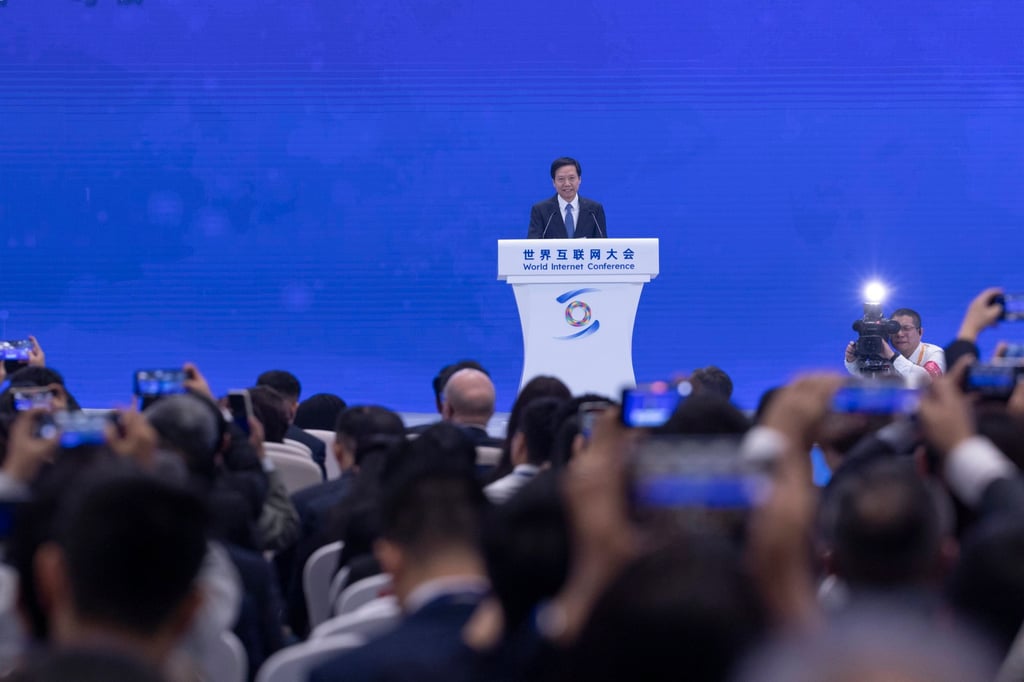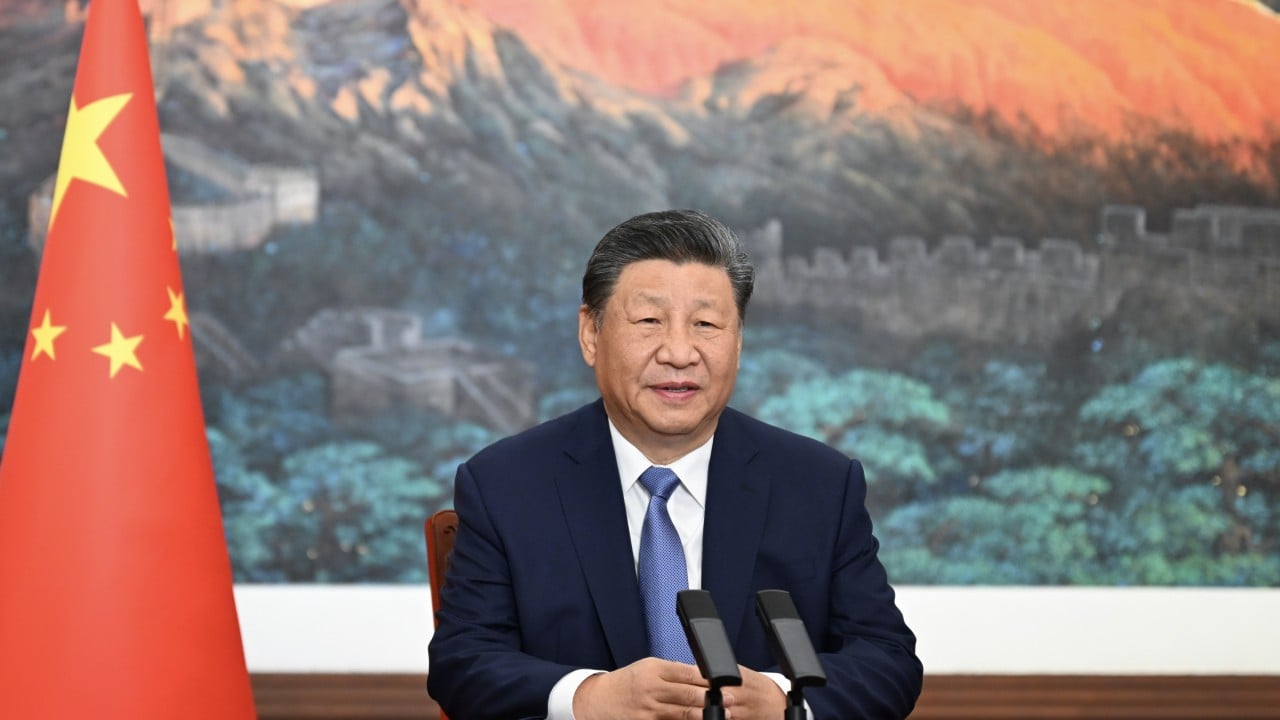Chinese President Xi Jinping is promoting the idea of a “shared future in cyberspace” at the country’s annual internet conference this year amid an intensifying US-China rivalry that has raised concerns about technological decoupling, particularly in artificial intelligence (AI) and semiconductors.
Advertisement
The advance of AI technologies has improved humans’ ability to change the world, but also “brought a series of unpredictable risks and challenges”, Xi said in a speech delivered via a video shown to the World Internet Conference on Wednesday. China will pursue safe and “inclusive” development of cyberspace and is willing to work with other countries to “build a community for a shared future in cyberspace”, he said, according to a report on the remarks by the state-run Xinhua News Agency.
The speech was published just a day after the US-China Economic and Security Review Commission, which reports to the US Congress, proposed a “Manhattan Project”-style initiative to fund the development of AI systems, referring to the US project during World War II that produced the first atomic bombs. Xi did not mention the US in his speech.
Vice-Premier Ding Xuexiang called for global coordination in internet governance at the event on Wednesday. Ding said AI – along with the internet, big data and cloud computing – is empowering economic and social development, but “the digital divide is still widening and the cyberspace security situation remains grim”. He also touted the need for the international community to contribute to a “shared future in cyberspace”, according to a video of his speech.

The World Internet Conference is hosted by the Cyberspace Administration of China in the town of Wuzhen, in eastern Zhejiang province, where Beijing uses the event to promote its view of cyberspace governance, centred around the idea of “cyber sovereignty”.
Advertisement

